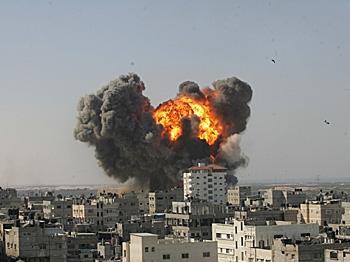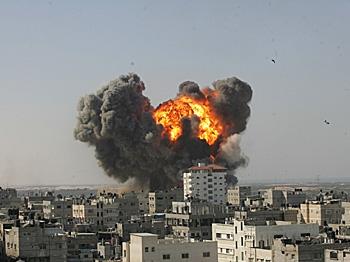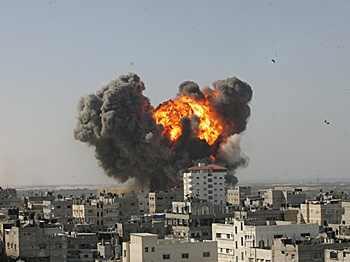For the past two days the Israeli Defense Force (IDF) ground forces have been pushing deeper into the Gaza Strip, but have not yet entered Gaza City. For the first time since the start of the operation, reserve troops have gotten involved in the fighting.
Israeli Air Force (IAF) planes continue to attack targets throughout the Gaza Strip. Between 300 and 400 Hamas fighters have been reportedly killed, including Amir Mansi, the commander of the Hamas rocket attack program. Mansi was the Hamas official directly responsible for the launching of long-range Grad missiles deep into Israel.
Approximately 900 Palestinians have been killed so far, according to reports. According to IDF Military Intelligence Director General Amos Yedlin, Hamas troops in Gaza are keen on a ceasefire, yet reluctant to wave the white flag.
Four Israeli soldiers were injured in a friendly-fire incident on Monday, Jan. 12. This is the third incident of friendly-fire injuries reported to date; these incidents point up the difficulties of urban combat.



